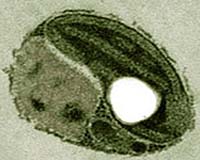| . |  |
. |
Tokyo (AFP) Aug 2, 2010 Japanese people, who consume most of the Atlantic and Mediterranean bluefin tuna catch, should avoid eating the species until its harvest becomes sustainable, the World Wide Fund for Nature (WWF) said Monday. Japan consumes three-quarters of all bluefin, mainly raw as sushi and sashimi, but experts agree that decades of overfishing have seen its stocks crash by more than two-thirds in the Mediterranean. "We want to make a call to Japanese traders, retailers and consumers," said Susana Sainz-Trapaga, who heads WWF's Mediterranean activities. "They have the huge opportunity to make a real difference in the current mismanagement situation. If Japanese consumers don't buy the fish they will force decision-makers in the end to find the right solution." Japanese consumers should choose skipjack and big-eyed tuna as alternatives until governments set up management measures that allow for the species to recover, Sainz-Trapaga said. In March the UN-sponsored Convention on the International Trade in Endangered Species (CITES) rejected a ban on the international trade in Atlantic bluefin tuna, which had been strongly opposed by Japan. The bluefin's fate is now in the hands of the International Commission for the Conservation of Atlantic Tunas (ICCAT), the inter-governmental group responsible for managing its stocks, which will meet in November. Last year, the ICCAT agreed to cut its bluefin tuna catch in the eastern Atlantic and Mediterranean by 40 percent, to 13,500 tonnes in 2010. The WWF has strongly criticised the deal, saying that it ignores a key study that found that even a strictly enforced 8,000-tonne quota would spell just a 50 percent chance of the recovery of the species. The conservation group plans to open a Tokyo symposium Tuesday in its first attempt to reach out directly to Japanese consumers to teach them about the endangered ocean giants and the illegal fishing involved.
earlier related report Doug Suttles's vote of confidence came two days after Louisiana state authorities reopened 2,400 square miles (6,200 square kilometers) of coastal waters for fishing, with the Food and Drug Administration (FDA) saying Gulf seafood harvested from such open areas is safe for human consumption. Environmentalists worry that not enough testing has been done on the seafood, and say BP's use of chemicals to dissipate the oil from the surface means there are lingering questions about toxicity in the fish. When asked by a reporter whether he'd eat the Gulf's bounty, Suttles didn't flinch. "I absolutely would," he told reporters after joining a flight over the Gulf to track the oil, which he insisted has dissipated dramatically. "There's been a tremendous amount of testing done by NOAA (the National Oceanic and Atmospheric Administration) and the state agencies and the FDA and others. They're not going to open these waters to either sport fishing or commercial fishing if it's not safe to eat the fish," he said. "I have a lot of confidence in those agencies and I trust their recommendations and I would eat their food -- the seafood out of the Gulf, and I would feed it to my family," he said. The Gulf of Mexico is known for its shrimp, crab, oysters, and dozens of species of fish. The billion-dollar industry is of national importance: the fertile Mississippi Delta region provides for some 40 percent of US seafood production. BP leased the Deepwater Horizon rig that exploded April 20, killing 11 workers and sparking the spill. Between three million and 5.3 million barrels leaked into the Gulf from April 20 to July 15, when a cap placed over the wellhead was sealed, fully containing the flow of oil for the first time. Crews on Sunday were ramping up efforts to permanently seal the ruptured oil well.
Share This Article With Planet Earth
Related Links Water News - Science, Technology and Politics
 Decline Of Marine Phytoplankton Over The Past Century
Decline Of Marine Phytoplankton Over The Past CenturyNova Scotia, Canada (SPX) Aug 02, 2010 A new article published in the 29 July issue of the international journal Nature reveals for the first time that microscopic marine algae known as "phytoplankton" have been declining globally over the 20th century. Phytoplankton forms the basis of the marine food chain and sustains diverse assemblages of species ranging from tiny zooplankton to large marine mammals, seabirds, and fish. Say ... read more |
|
| The content herein, unless otherwise known to be public domain, are Copyright 1995-2010 - SpaceDaily. AFP and UPI Wire Stories are copyright Agence France-Presse and United Press International. ESA Portal Reports are copyright European Space Agency. All NASA sourced material is public domain. Additional copyrights may apply in whole or part to other bona fide parties. Advertising does not imply endorsement,agreement or approval of any opinions, statements or information provided by SpaceDaily on any Web page published or hosted by SpaceDaily. Privacy Statement |